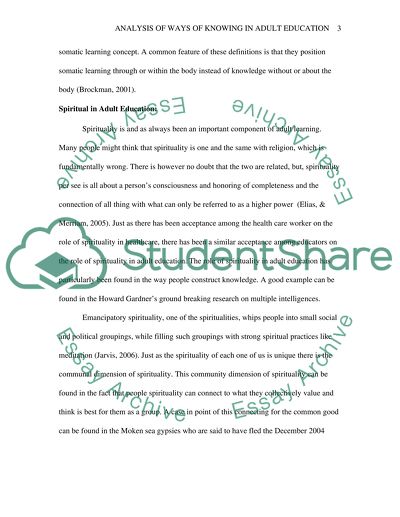Cite this document
(“Analysis of Ways of Knowing in Adult Education Assignment”, n.d.)
Analysis of Ways of Knowing in Adult Education Assignment. Retrieved from https://studentshare.org/education/1438050-analysis-of-ways-of-knowing-in-adult-education
Analysis of Ways of Knowing in Adult Education Assignment. Retrieved from https://studentshare.org/education/1438050-analysis-of-ways-of-knowing-in-adult-education
(Analysis of Ways of Knowing in Adult Education Assignment)
Analysis of Ways of Knowing in Adult Education Assignment. https://studentshare.org/education/1438050-analysis-of-ways-of-knowing-in-adult-education.
Analysis of Ways of Knowing in Adult Education Assignment. https://studentshare.org/education/1438050-analysis-of-ways-of-knowing-in-adult-education.
“Analysis of Ways of Knowing in Adult Education Assignment”, n.d. https://studentshare.org/education/1438050-analysis-of-ways-of-knowing-in-adult-education.


